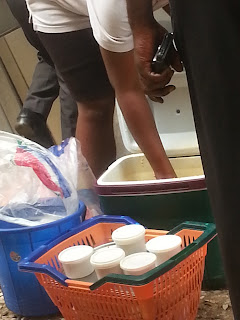World Environment Day - Decade of Ecological Restoration
 |
Planting of Mangrove Seedling Wetland Ecosystem Restoration Photo Credit @izucals |
Every year, the world celebrates 5th of June as World Environment Day. This is a day set aside by the United Nations (UN) to remind us on the need to protect, conserve and use environmental resources sustainably. In marking this day a theme is usually set for the yearly event and this year's theme is Ecosystem Restoration, with special focus on creating good relation with nature.
This year's event is significant because it marks the beginning of the United Nations Decade on Ecosystem restoration. The UN will over the next ten years (2021 - 2030), support countries, organizations and people who are determined to restore or rehabilitate degraded ecosystems around the world. Preventing natural ecosystem from degradation is also vital and would be a crucial part of this campaign. This effort is geared towards achieving the United Nations Sustainable Development goals, and also reducing the impact of climate change.
An ecosystem is the interaction of all living organisms in a particular place amongst themselves and their surrounding. Ecosystems exist at all scales on earth and includes wetlands, rivers and lakes, grasslands, forests, coral reefs, farmlands and urban cities.
Ecosystems provides us with numerous goods and services and the importance of an ecosystem to life on earth cannot be over emphasized. Food, clean water, breathable air, erosion and flood control, stable climate, protection from diseases and disasters are some of the numerous benefit of an ecosystem.
Various ecosystems play different roles in sustaining life on earth, which is why natural ecosystems are important for our physical and mental health and well-being on earth. Despite the importance of ecosystems on earth, many of these ecosystem face grave threats, from pollution to over exploitation, deforestation, degradation, urbanization and population explosion. The nature and kind of threat faced is unique to different ecosystem.
If urgent steps are not taken to reverse some of the damage done on various ecosystems and conscious effort made to mitigate the degradation of pristine ecosystem, we will not only jeopardize our environment, but also bequeath an inhospitable environment to our generations unborn.
Everyone on the planet have a role to play in restoring ecosystems and protecting their biodiversity for nature and people. Great ways to get involved is by taking action. How do we take action?. We can take action by starting or supporting restoration initiatives, making better life style choices that protects the environment and raising our voices to issues about our environment. For more details on how to join, start or participate in any ecological restoration effort visit United Nations Environmental Program ecosystem restoration playbook.



Comments
Post a Comment